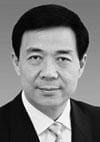Public scandals involving Chinese Communist Party Politburo members are rare at any time, and so the recent forced replacement of Bo Xilai — party secretary of Chongqing Municipality and a contender for the top leadership within the new Politburo to be chosen at the 18th Party Congress in October this year — during the normally uneventful, over-scripted and highly formal National People’s Congress meetings in Beijing this week has raised eyebrows throughout China and all around the world. Does such a high profile ouster suggest China is gearing up for a tumultuous leadership transition in the run up to the Party Congress? The recent history of scandals involving top leaders in China suggests not.
Politburo members have been ousted in the past in political struggles leading up to past Party Congresses — Shanghai Party Secretary Chen Liangyu was replaced in a scandal involving land rights and corruption in fall 2006 — and some have even gone to jail. It is, however, rare for a “princeling” to be sent down: Bo (pictured right) is the son of former elder statesmen Bo Yibo, one of the “Eight Immortals” of revolutionary leaders, including Deng Xiaoping, who survived the Cultural Revolution and the death of Mao and led China into reforms that created an economic powerhouse.
Bo was most likely replaced because of a scandal involving his lieutenant, Wang Lijun, his chief of security, who walked in to the U.S. consulate in Sichuan in early February, possibly requesting asylum. It is not known what all was discussed, or what he took in to the consulate with him, but when he emerged a day later he was arrested by police and detained “for medical reasons.” Bo was most likely removed because of his handling — or lack thereof — of this highly sensitive incident. We will have to await the inevitable investigation, with public release of its details invariably timed to come out after the Party Congress, in order to find out the formal case against Wang and his boss.
What makes this case potentially significant is the replacement of a popular Chinese central leader who seemed to have no significant policy disagreements with any of the other top Communist Party leaders. He was known for speaking to reporters freely, for engaging in highly visible anti-organized crime campaigns, and for reviving the symbols and icons of a Maoist revolutionary past to try to instill “socialist values” and “national pride” among the citizens of his city. He was also known for treating the peasants of the city under his control — Chongqing is a city with a large agricultural area attached to it — as the equal of the urban residents, creating a system of health care and education that many peasants in other rural areas of China do not yet enjoy. All of these policies were perfectly in line with the national development goals of Party Secretary Hu Jintao and Premier Wen Jiabao.
Bo’s downfall can most likely be attributed to his style of leadership, and in particular his use of populist, charismatic language and public displays that the central leaders have forbidden since the death of Chairman Mao in 1976. He was no advocate of revolutionary class conflict, or the nationalization of private enterprise, and yet he appropriated the symbols and icons of those past campaigns in a way that offended many who had suffered the red terror during the Cultural Revolution. Premier Wen Jiabao invoked these reasons when he referred to a fear of a return to the Cultural Revolution and ultra-leftist and totalitarian Party rule during his talk with reporters at the National People’s Congress earlier this week.
In this way, Bo’s removal is likely to cause other princelings and all top leaders to think twice about stepping outside of Party discipline and speaking in public without the prior approval of top party organs in Beijing. The Chinese Communist Party is tightening party discipline.
Steven W. Lewis is the Baker Institute’s C.V. Starr Transnational China Fellow and faculty adviser for the Jesse Jones Leadership Center Summer in D.C. Policy Research Internship Program. He is also a professor in the practice and an associate director of the Chao Center for Asian Studies, as well as an affiliated faculty member of the Department of Sociology at Rice University.
